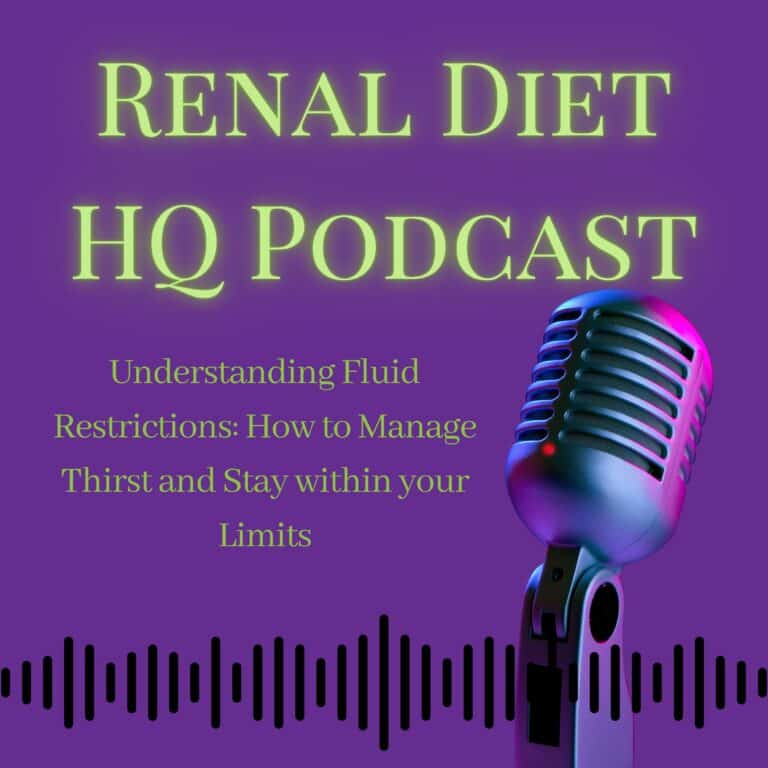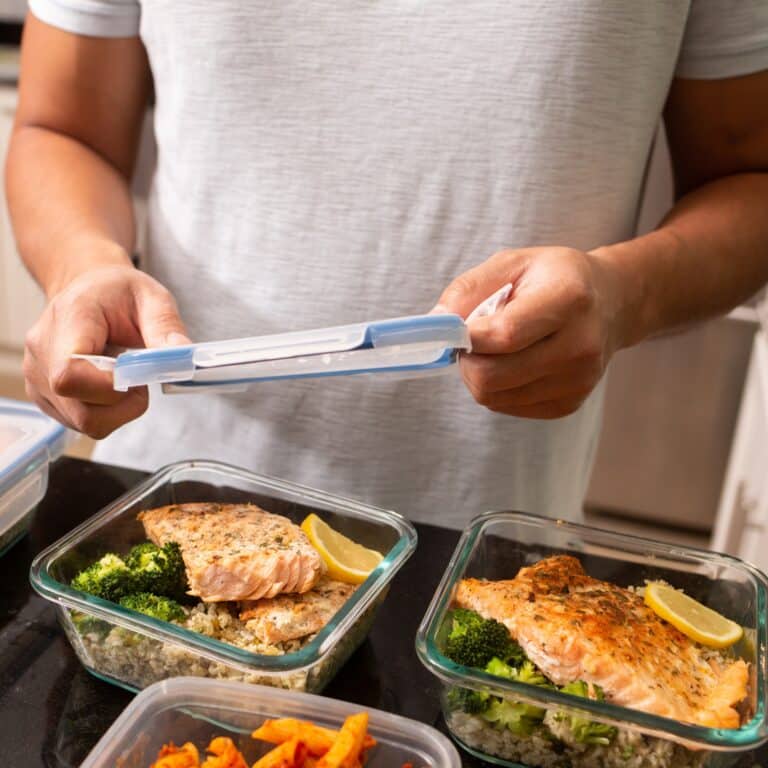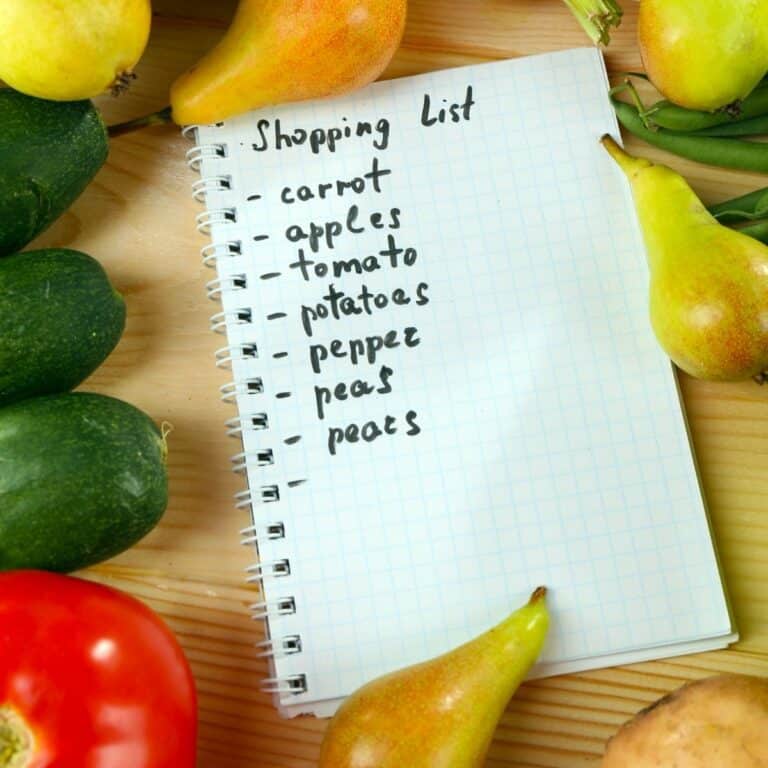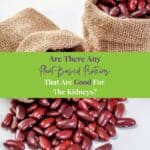What Foods Help Repair Kidneys
Do you know what foods help repair kidneys? If you have kidney disease, or someone close to you does, it is important to understand how diet and nutrition can improve your health. Eating the right foods can help your body repair itself and even reduce symptoms of kidney damage.
In this article, we will discuss the power of nutrition in kidney health and provide tips for creating a CKD Diet plan. We'll cover everything from which foods are high in antioxidants to why omega-3 fatty acids are essential for kidney repair.
As a Registered Dietitian with over 25 years of experience, I specialize in creating kidney-friendly meal plans that support optimal health for those with Chronic Kidney Disease (CKD). My expertise in renal nutrition is backed by extensive education, including a Bachelor’s degree in Nutrition, a supervised internship, and ongoing training to stay up to date with the latest research. At Renal Diet HQ, I provide evidence-based guidance to help individuals incorporate nutrient-dense superfoods into their diet while maintaining safe potassium, phosphorus, and sodium levels.
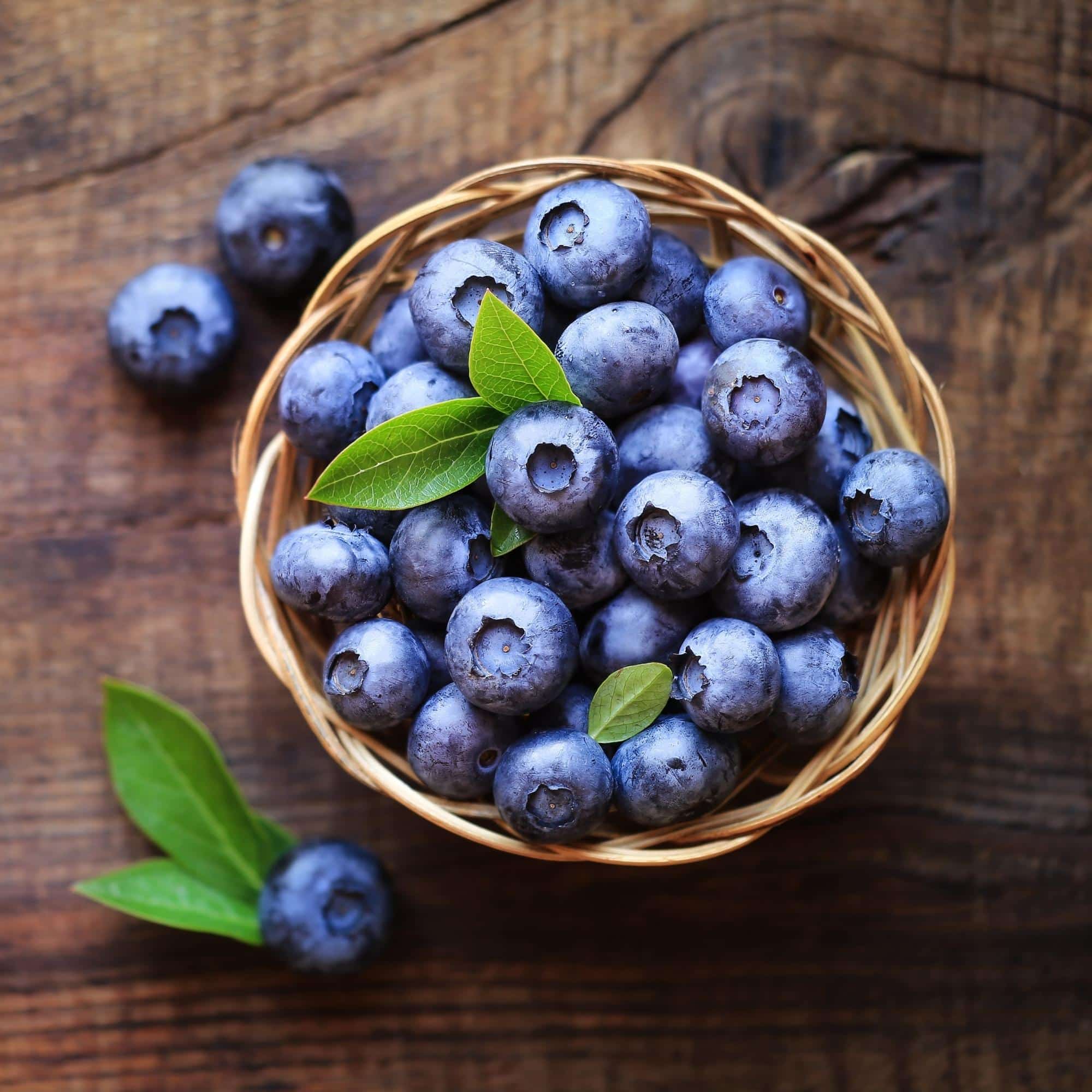
Let's get started on a kidney-friendly eating plan that works best for you!
Jump to:
- The Power of Nutrition in Kidney Health
- What Foods Help Repair Kidneys?
- The Importance of Hydration for Kidney Health
- High Antioxidant Foods: Berries, Apples, and Red Grapes
- Citrus Fruits: Why Vitamin C is Essential for Kidney Repair
- Cruciferous Vegetables: The Protective Role of Kale, Cabbage, and Broccoli
- Omega-3 Fatty Acids: The Benefit of Fish and Flaxseeds
- Fiber-Rich Foods: Whole Grains, Beans, and Kidney Health
- Garlic and Onion: The Health Benefits of Allicin
- Best Foods For Kidney Repair
- FAQs for Foods That Help Repair Kidney Disease
- Improve Your Kidney Health With Food
For More Recipes and Ideas --->> Get Your Free Meals and Recipes That Are Perfect for Pre-Dialysis Diets, Pre-Dialysis with Diabetes, or Dialysis Diets.
The Power of Nutrition in Kidney Health
Eating the right foods for kidney health can be empowering for people with kidney problems. It helps repair their kidneys, while providing them with nutrients, instead of making kidney disease worse, it makes it better.
Hydration plays a crucial role in the health of your kidneys and should be monitored closely. Of course, this varies person to person.
When limited to fluids due to kidney damage, adding spices or frozen grapes can help add flavor to meals without compromising nutrition or hydration. It's also important to provide emotional support for those living with kidney disease, so they feel empowered to make healthy choices.
A personalized diet plan, created by a dietitian, can help people living with kidney disease stay nourished, while avoiding foods that may worsen their condition. This includes limiting sodium, potassium, phosphorus, and protein intake.
Kidney-friendly foods, such as cauliflower, blueberries, sea bass, red grapes, egg whites, garlic, and buckwheat, are low in sodium and potassium, but still provide many essential vitamins and minerals needed for proper functioning of the body.
Other helpful additions include olive oil, for its healthy fats and vitamin E content, as well as bell peppers, which are high in vitamins A & C.
Should you eat fresh or canned vegetables for a renal diet? By incorporating these nutrient-rich foods into meals, alongside cooked vegetables, like cabbage, which contain antioxidants that reduce the risk of obesity or liver damage. People living with chronic kidney disease can enjoy delicious meal options, while helping protect their kidneys from further damage.
Sweet potatoes are an excellent source of soluble fiber, which helps reduce cholesterol levels, making them beneficial for overall heart health too!
What Foods Help Repair Kidneys?
Consuming nutrient-rich, low-potassium, and low-sodium foods can assist in repairing kidney damage, and watching the potassium content in your diet is important. Understanding the causes and common symptoms of CKD is just as important as learning how to monitor your body for a successful repair.
A number of lifestyle changes are in store for people with kidney disease, in combination with medications and a carefully planned diet. This can all help restore kidney function and reduce the factors for kidney disease that might impact your health.
| Causes & Symptoms | Tests | Lifestyle Changes |
|---|---|---|
| Swelling Fatigue High blood pressure Proteinuria | Blood tests Urine tests Imaging tests Kidney biopsy | Low sodium/potassium diet Regular exercise Stress management Adequate sleep |
Being aware of the signs and symptoms of kidney damage is essential for early detection. Knowing when to have regular check-ups and what types of tests are available, is also important for monitoring progression or improvement.
Commonly used tests include urine and blood tests, imaging studies, such as an ultrasound or CT scan, or a biopsy if needed. It's also necessary to make lifestyle changes, such as following a low sodium/potassium diet adapted to their specific needs, exercising regularly, getting adequate sleep, managing stress levels etc.
This is in order to boost the body's own healing capabilities, while slowing down further damage, caused by underlying conditions, like diabetes or hypertension. All these elements are part of an effective treatment plan that should be discussed with a healthcare professional. This should be done before any changes are made in order to ensure long-term health benefits.
The Importance of Hydration for Kidney Health
Staying hydrated is key to maintaining healthy kidneys, so make sure you drink plenty of fluids throughout the day! Hydration is especially important for those suffering from kidney disease, as inadequate hydration can worsen symptoms. Dehydration can lead to an imbalance of electrolytes in the body, resulting in muscle cramps or dizziness.
It's also important to be aware of potential dehydration risks such as excessive vomiting and fever. When it comes to the best drinks for kidney health, water should be your go-to kidney friendly drinks.
Water helps flush out toxins from the body, while providing necessary minerals and electrolytes. Other fluids such as fruit juices or herbal teas may have added sugar or sodium, which could aggravate existing kidney problems.
For those with diabetes or high blood pressure, low-sodium vegetable juices are a good alternative. An individual should adjust their water intake, based on their level of physical activity and heat exposure. It is recommended that adults aim for 8 glasses of water per day (1 glass = 8 ounces).
Kidney disease patients may need extra fluids, depending on their doctor's advice. Aim for at least 2 liters per day, unless you have been told to follow a fluid restriction diet by your doctor. Avoid alcohol, when possible, as it can interfere with medications and increase dehydration risk.
Hydrating regularly will help keep your kidneys functioning optimally and prevent further damage down the line!
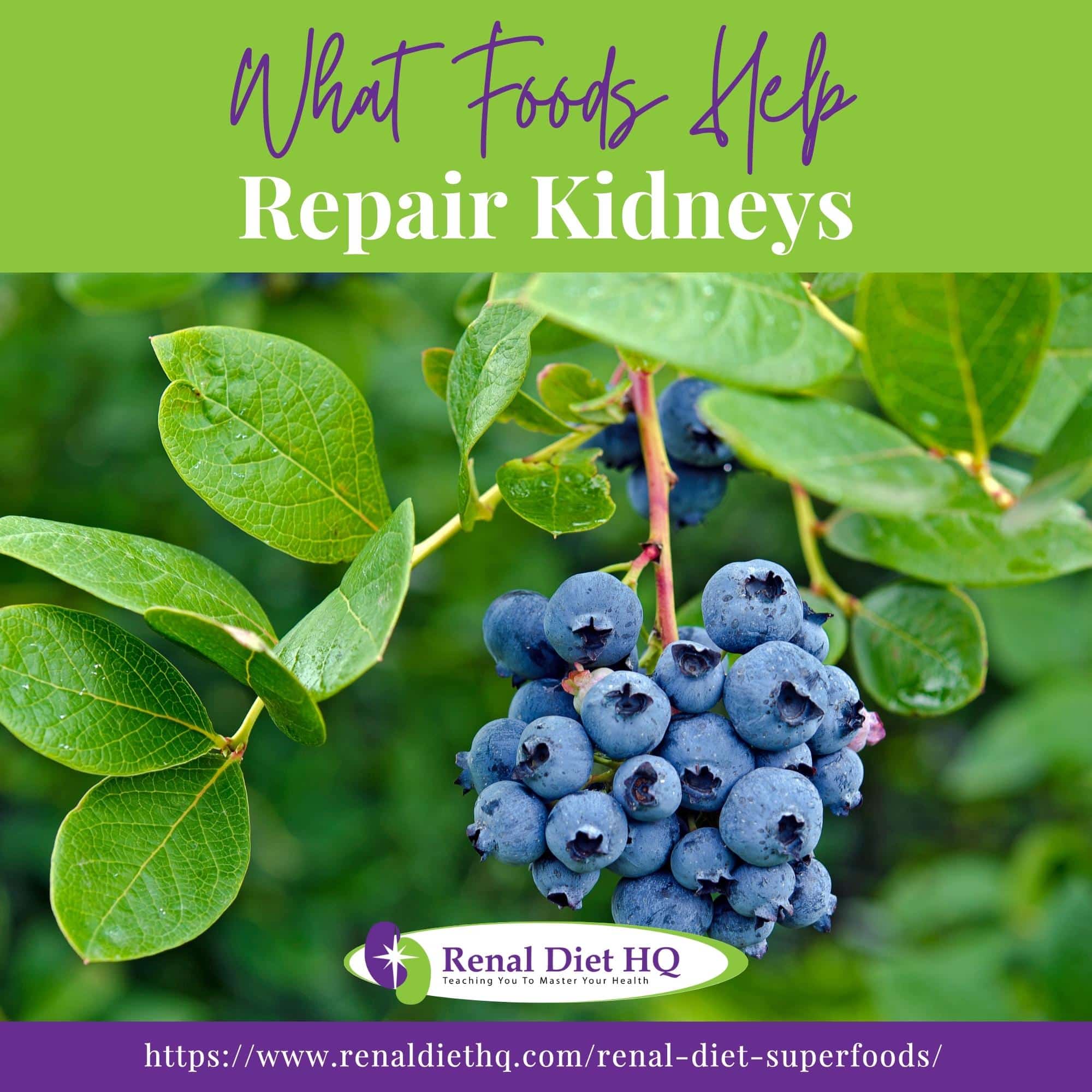
High Antioxidant Foods: Berries, Apples, and Red Grapes
Are berries high in potassium? Enjoying high antioxidant foods like berries, apples, and red grapes can help protect the kidneys from further damage and balance minerals and fluids. These superfoods provide an array of health benefits to those with kidney disease and should be included in any meal plan when possible.
All while helping to reduce oxidative stress and inflammation, while providing nutrient-rich options for renal repair with their abundance of antioxidant compounds.
Here are some delicious, yet healthy foods you can add to your diet:
- Apples: Lower cholesterol and glucose levels, while providing brain health benefits and protecting against cancer and heart disease.
- Blueberries: Rich in nutrients and antioxidants. Low in sodium, potassium, and phosphorus.
- Fish: High-quality protein with omega-3 fatty acids that decrease the risk of abnormal heartbeat and lower blood pressure.
- Kale: Abundant in vitamins and minerals, and also beneficial for eye health as well as cancer protection.
- Spinach: High in vitamins, along with folate, which boost immunity. while protecting vision.
These powerhouses are packed full of antioxidants that have been linked to reducing symptoms, associated with kidney disease, all while boosting overall wellbeing.
So, if you are trying to stop the progression of kidney disease, consuming lots of fruits and animal protein can help. Of course, you should be aware of how much protein you are consuming if you're on a lower-protein diet.
In addition to these fruits, vegetables, legumes, grains, nuts, and seeds can be added into meals or snacks for a nutrient-dense boost that helps rejuvenate the body naturally! So, with the ideal food and not consuming excess fluids, you can create a diet that works best for you!
Citrus Fruits: Why Vitamin C is Essential for Kidney Repair
Getting your daily dose of vitamin C from citrus fruits is essential for kidney repair and overall health. Vitamin C is a powerful antioxidant, fighting off cell-damaging free radicals and helping the body to heal itself.
It also helps support a healthy immune system, aids in collagen production, boosts iron absorption, and is involved in hormone synthesis.
| Citrus Fruit | Vitamin C Content (mg per 100g) |
|---|---|
| Oranges | 53.2 |
| Lemons | 53.0 |
| Grapefruits (pink/red) | 39.7/44.7 |
| Limes | 30.4 |
The best sources of vitamin C are citrus fruits like oranges, lemons, grapefruits (pink or red), and limes, or even orange juice. These fruits contain between 30-53 mg of vitamin C per 100g serving size, depending on the specific type of fruit you choose. Is grapefruit good for kidneys? Do be cautious of how much grapefruit you eat and when you take your medications.
This makes them an excellent dietary source for this essential nutrient. The recommended daily intake of vitamin C is 75mg for women and 90mg for men, so eating just one citrus fruit can help you reach your goal!
Vitamin C plays an important role in kidney repair by boosting immunity and improving the absorption rate of key minerals. These key minerals include calcium, magnesium, copper, zinc, and selenium, which are all needed by our kidneys to function properly.
Eating two to three servings of citrus fruits each day can help promote kidney health. This can be done, all while providing plenty of other vitamins such as A and B6, as well as fiber, to help keep us strong and healthy long term!

Cruciferous Vegetables: The Protective Role of Kale, Cabbage, and Broccoli
Do you struggle with kidney issues or kidney failure? Power up your body and give your kidneys some extra love, with the protective benefits of cruciferous vegetables like kale, cabbage (kidney friendly cabbage recipes), and broccoli! Incorporating these veggies into a kidney-friendly diet offers numerous health benefits.
Let's explore the science behind how they support kidney health, compare their nutrient profiles, discuss tips for cooking them, and consider creative meal ideas for picky eaters.
Cruciferous vegetables are high in vitamins A and C as well as other antioxidants that defend against cancer and oxidative stress. Kale is rich in vitamins and minerals, such as manganese and calcium, which help manage blood sugar levels while reducing risk of liver damage.
Cabbage also contains beneficial prebiotic fibers that protect against obesity, while providing anti-inflammatory properties. Broccoli is packed with vitamin K, which helps prevent abnormal heartbeat and maintains strong bones.
When preparing these vegetables, it's important to limit table salt intake, while opting for fresh or frozen options when possible. Chopping or shredding them raw will provide crunchiness, without adding extra sodium or potassium to meals.
Mashing cauliflower can be used as a low-carb substitute for mashed potatoes. Adding garlic provides an alternative flavor, without using excess salt or phosphorus binders.
This includes cruciferous vegetables in dishes, like stir fries with skinless chicken breast. This offers a delicious way to get protein, without too much phosphorus content.
Lots of vegetables may not only assist with healing current kidney issues, but could potentially help prevent future problems.
Omega-3 Fatty Acids: The Benefit of Fish and Flaxseeds
Consuming omega-3 fatty acids found in fish and flaxseeds can help reduce the risk of abnormal heartbeat and lower blood pressure. It can do this, while providing numerous other health benefits. Omega 3 fatty acids are an essential part of a healthy diet, especially for those with kidney disease.
Studies have shown that incorporating foods rich in omega-3 into one's diet can provide several health benefits. Fish, such as salmon and mackerel, are excellent sources of omega-3 fatty acids, which help to improve cardiovascular health. Flaxseeds are also high in omega-3s and contain antioxidants that may protect against cancer and heart disease.
Eating fish two or three times a week is recommended for people with kidney disease because it helps reduce inflammation.
Fish provides essential vitamins and minerals like zinc, iron, selenium, potassium, magnesium, phosphorus. Flaxseed oil has been found to be beneficial for improving overall kidney function, by decreasing serum creatinine levels.
Research suggests that consuming more foods rich in omega 3 fatty acids also boosts the body's ability to fight infections. This is due to its anti-inflammatory properties that can decrease inflammation throughout the body, including the kidneys.
These foods have been found to help manage blood sugar levels which is important if you have diabetes. Diabetes is a major cause of chronic kidney disease, when left unmanaged or untreated over time.
Eating plenty of fish and flaxseeds can support your kidneys by providing them with vital nutrients. These nutrients promote healthy functioning, while helping protect them from damage caused by toxins or poor lifestyle choices, such as smoking or excessive alcohol consumption.
Fiber-Rich Foods: Whole Grains, Beans, and Kidney Health
Incorporating fiber-rich foods like whole grains, beans, and lentils into your diet can provide an array of health benefits for your kidneys. Whole grains are a great source of essential vitamins and minerals that help keep your kidneys functioning properly, as well as being a great source of fiber. They also contain insoluble fiber, which helps to flush out toxins from the body.
Legumes like beans, peas, and lentils are packed with plant-based proteins, which can help reduce stress on the kidneys while providing important nutrients like iron and zinc. Eating more fiber-rich foods can also improve the relationship between kidney health and gut health. This is because it helps maintain healthy bacteria levels in the intestines.
Whole grain options such as brown rice, oats, barley, quinoa, buckwheat, millet and bulgur contain beneficial vitamins and minerals that support kidney function. They are also low in potassium and phosphorus, which is ideal for those with kidney disease, who need to limit their intake of these two minerals but also get plenty of dietary fiber.
Eating whole grains provides long-term energy, without spiking blood sugar levels, or raising blood pressure too much. Both of which are important for people with chronic kidney disease or diabetes.
Are kidney beans good for kidneys? Legumes such as beans (black beans, pinto beans), peas (chickpeas), split peas (yellow split peas) and lentils (red lentils) are excellent sources of protein without containing high amounts of phosphorus or potassium.
This makes them an ideal substitute for animal proteins. Legumes can be incorporated into salads or cooked dishes easily because they have a neutral flavor profile. However, they also add texture to meals, which makes them very versatile, when preparing meals at home.
Eating legumes regularly will not only provide essential nutrients, but will also promote better digestion. This is thanks to its high fiber content, which may lead to improved overall wellbeing.
Garlic and Onion: The Health Benefits of Allicin
Adding garlic and onion to your meals can provide you with a powerful array of health benefits, thanks to the allicin they contain. Allicin is an organic sulfur compound found in garlic and onions, and it's been used for centuries as an antibiotic agent.
It helps to reduce inflammation, improve digestion, fight infection, boost immune system function, and even aid in kidney repair. Here are some ways that you can incorporate garlic and onion into your diet for maximum benefit:
- Benefits of allicin: Studies have shown that consuming garlic or onions on a regular basis can help reduce inflammation and improve cardiovascular health. Allicin has antibacterial properties, which can help fight off infections.
- Allicin and kidney health: Due to its anti-inflammatory properties, allicin may be beneficial in reducing symptoms of chronic kidney disease such as swelling or fluid retention. It also helps regulate electrolyte balance which is important for overall renal health.
- Incorporating garlic and onion: You can easily add garlic or onions to your meals by adding them into sauces or marinating meats with them prior to cooking.
Adding them raw into salads will provide you with the most benefits from their potent allicin content. Try experimenting with different recipes that call for both ingredients like pesto sauce or Italian dressing!
- Allicin rich recipes: Garlic bread made from freshly minced cloves is a delicious way to get more alliums in your diet, while still being able to enjoy something savory! Soups are another great option.
Adding chopped onions, during the last few minutes of simmering, will give it more flavor ,without overwhelming it with too much oniony taste. Stir fries are also perfect for incorporating both ingredients, just make sure not to overcook them, so they retain their crunchiness!
- Allicin supplements and kidney repair: If you don't enjoy eating raw garlic or onion, then there are several supplements available on the market that provide concentrated doses of alliums without any unpleasant flavorings.
Taking these supplements daily may help promote better renal health over time by reducing inflammation throughout the body. Always consult your doctor before starting any new supplement regime!
Garlic and onion have long been used as natural remedies due to their high concentration of beneficial compounds like allicin makes them great additions for anyone looking for improved overall wellness and possibly better kidney repair capabilities.
With just a little bit of effort, you can easily incorporate these two culinary powerhouses into your diet. So start adding them today!
Best Foods For Kidney Repair
Making lifestyle changes and creating a kidney-friendly diet plan can be an effective way to promote healthier kidneys and overall well being. The focus of the diet should be on fruits, vegetables, lean proteins, whole grains, and unsweetened fluids (fluids to hydrate with kidney disorder).
Low sodium, potassium, phosphorus levels should all be taken into account when planning meals. It's important to limit protein intake in late-stage kidney disease as too much can cause further damage.
It may also help to monitor fluid intake in early stages of kidney disease to avoid high blood pressure and swelling. Nutritional counseling is recommended for those with kidney disease as this will ensure you're on the right track with your dietary needs.
A registered dietitian or nutritionist can provide individualized meal plans that reduce risk factors associated with kidney injury, while providing key nutrients for healing. They can also recommend low-potassium snacks, such as frozen grapes or bell peppers for those who are restricted from eating solid foods.
In order to ensure healthy kidneys and sustained wellbeing throughout life, modifications must be made in lifestyle choices, including diet habits and fluid intake management.
In addition to consulting a professional healthcare provider for personalized dietary advice, there are many options available online for renal-friendly recipes that provide flavor without compromising the health status of the kidneys.
FAQs for Foods That Help Repair Kidney Disease
Yes, there are several plant-based proteins that are beneficial for the kidneys and can be included in a kidney-friendly diet.
For example, legumes such as beans, lentils, and peas are excellent sources of plant-based protein that offer numerous health benefits. Eating a variety of these foods provides essential vitamins and minerals, while also helping to reduce inflammation.
Nuts like almonds, walnuts, macadamia nuts, and pistachios are great sources of healthy fats and help to regulate blood pressure levels. However, they should be consumed in moderation due to their high phosphorus content.
Finally, quinoa is an ancient grain that is high in fiber and protein. It is also low in sodium and potassium making it an ideal choice for those following renal nutrition guidelines (reading nutrition facts labels with CKD).
Incorporating natural remedies like these into your diet can provide you with the nutrients needed to maintain healthy kidney function, without putting too much strain on them.
If you have kidney disease, it's important to limit or avoid certain foods. You should limit your sodium intake as it can worsen the condition of your kidneys and cause further damage.
You should also be aware of your potassium and phosphorus levels, because too much of these minerals can weaken bones, damage blood vessels, eyes, and heart. You may need to restrict protein consumption as protein makes the kidneys work harder.
Why low protein diet in kidney disease? Some protein sources, such as canned meats, are high in sodium; therefore, they should be avoided. Finally, you should reduce your chance of developing kidney stones by avoiding processed foods or pre-made meals that have lots of salt added. Remember, a low-sodium salt diet is necessary.
Water is the best type of fluid for kidney health because it helps keep hydration levels balanced and can even help prevent kidney stones. It's also important to limit other types of fluids, such as sugary drinks and alcohol, to maintain healthy kidney function.
For those with chronic kidney disease or who are waiting for an organ donation, speaking with a doctor about hydration levels, may be beneficial to ensure that their kidneys are functioning properly.
When it comes to eating fresh or frozen fruits and vegetables, the best option is fresh. Organic produce sometimes has higher nutritional values than canned goods or juiced vegetables and is free of preservatives.
Fresh fruits and vegetables provide more vitamins, minerals, fiber, and antioxidants than their frozen counterparts.
Eating fresh foods helps your body absorb all the nutrients it needs for overall health and wellness. Herbal teas are also a great alternative to processed meats.
Improve Your Kidney Health With Food
You have the power to make changes that can improve your kidney health. Eating a diet full of fruits, vegetables, whole grains, and omega-3 fatty acids can help repair and protect your kidneys. It's also important to stay hydrated and limit processed foods, sugary drinks, and high sodium meals.
Lifestyle changes such as exercising regularly and reducing stress are key for keeping your kidneys healthy. So, don't be discouraged if you're diagnosed with kidney disease. It’s time to take control of your health, by eating nutritious foods and making positive lifestyle changes!





